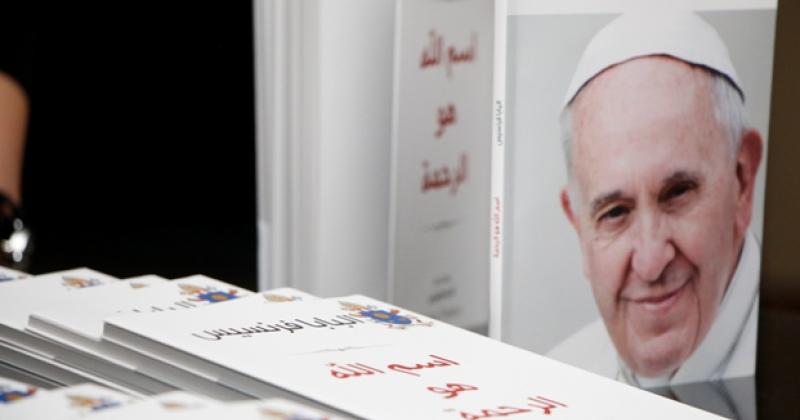The title of this article is derived from a book issued by Pope Francis which has been translated into Arabic by the Catholic Center for Studies and Media. The book represents a series of meetings conducted by Italian researcher Andrea Tornielli with the head of the Catholic Church. This book is not designed to serve as a source for "formal education" as it is a book of a person who has international considerations, namely Pope Francis.
The issuance of the book coincided with ''the Year of Mercy", a year abounding with several global initiatives, and has been marked in several countries. In Jordan, it was marked by the launching of the Restaurant of Mercy and the Gardens of Mercy.
The book has small-sized pages which contain great meanings. It was translated into 40 languages. In this book, the Pope reacts to queries by the journalist about certain memories he had in his hometown, Argentine. The book is a call to clergymen and to humanity in general to take into consideration human dignity, or rather the dignity of every human being since it is a basic issue. It also indicates that the need of humanity to mercy far exceeds any other need. Satiating people's needs for mercy would rather bring forth goodness and peace.
The launching of the Arabic version of the book has taken place at the Royal Cultural Centre in a celebration revealing great significance. It was attended by a large number of official, religious and civil figures from all shades of society. Aside from the welcoming speech delivered by the Catholic Center for Studies and Media. Following are five major points:
First: The participation of Minister of Culture Dr. Nabih Shuqom. The book tackles mercy. It is culture rather than showing off a temporary arrangement. The fact that the official authorities in our country moved some of the departments assigned to combat extremism from the Ministry of Interior to the Ministry of Culture, they are fully aware of the "cultural and educational" significance. It indicates that "culture" dominates society and makes some of its members—in association with schools attended by extremists or peaceful people—get armed with the culture of accepting and respecting others. This is "mercy" where it is not limited to charity sponsored by the Ministry of Social Development but rather an indication of the people's culture based on their upbringing or rather religious upbringing.
Second: The religious upbringing states that mercy is a bridge of knowledge and cooperation among various religions and that it is not confined to a certain religion. From this premise, the ceremony marking the launching of the book "The Name of God of God is Mercy" included Christian and Muslim speakers. Having Patriarch Emeritus Fouad Twal seated next to the minister of culture and to Islamic Sharia academic Dr. Nida' Zaqzouq is cogent evidence of the adoption of a new approach in inter-religious dialogue which is not based on doctrinal dialogues but on cooperation among the followers of religions based on resorting to "mercy'' as a means for life.
Third: The author of the book Andrea Tornielli participated personally in the ceremony. This is not something new for Jordan as he had accompanied three Popes on their pilgrimage trips to our holy places in the years 2000, 2009 and 2014. He used to frequent the Royal Cultural Center being a media center during his three visits. The visit this time is quite different and emotional or rather a unique one for never did it happen that mercy had served as a bridge of cooperation among religions, as is the case with Jordan.
Fourth: The participation of the new generation in the ceremony marking the launching of the book--which included a musical performance by brothers George and Fadi Qdais, song by Violetta Makhamreh, and reading a page from the book which reflects humanity's need for mercy by student Tima Mohammadiyeh, reflected a propitious atmosphere predicting a future of goodness. So long that our society brings forth one generation after the other that seeks education based on mercy and reflecting on its effect in life, we are then in good shape.
Fifth: The ceremony, highlighted by media outlets, indicates that there are people who approve of voluntary work and this is something worthy appreciation. A shield of the Catholic Center for Studies and Media was presented this year to Caritas Jordan, a pioneer in mercy which celebrates its 50th anniversary in Jordan in the Year of Mercy. Further shields were presented to Mr. Salameh Jad'oun and Mr. Mohammad Bishtawi for volunteering to linguistically review the Arabic version of the book. The book was earlier translated by Mr. Munir Bayouk of the Catholic Center for Studies in Jordan and reviewed by Patriarch Emeritus Michel Sabbah.
May the mercy and the love of the Lord overwhelm us.
